Latest questions:
Trending questions:
Hot questions:
health and wellness obstacles
A significant problem that needs to be addressed in our society is the ultimate responsibility for an individual's health. Is the total burden due to lack on motivation of the individual, lack of education and resources, advertising for unhealthy product choices, or a lack of availability of healthy food alternatives?
8 answers
Patients as consumers require data and information for decision-making, something that is sorely lacking to-date. Economic incentives have been utilized with drugs since the advent of PBMs but don't address true outcomes driven clinical care by consumers managing their condition or wellness.
Unhealthy product choices and taking care of health does lead to clinical conditions requiring short or chronic care, such as diabetes and cardiovascular care. While strides have been made in both young and old populations, the vast majority have yet to be reached consistently--not just effectively.
There are several reasons for the health problems we face. One is as mentioned a lack of motivation, the biggest is lack of education. This is not just among the public but amoung the medical profession. They know very little and studied very little about nutrition and therefore do not promote it. There is plenty of healthy food around if one is educated. The mass advertising from food companies make it harder but with proper education this is easily overcome. People like me have to keep researching, writing and getting the message out there. I think it is slowly working but we have a long way to go.
This morning I listened to Chapter 21 of, Folks, This Ain't Normal: A Farmer's Advice for Happier Hens, Healthier People, and a Better World, by Joel Salatin, and he happened to address the question, "why aren't consumers motivated to take care of their health?" I'll recap what he said, because I think he is bang on:
- Ultimately, it's we as individuals who are responsible for our individual health.
- Americans started losing the need to take responsibility for their health when the Federal Meat Inspection Act of 1907 was enacted under Teddy Roosevelt. At the time, working conditions at Chicago-based meat packers were unsanitary and unsafe, and workers were literally falling into vats and becoming part of the product. This was revealed in the novel, "The Jungle", by Upton Sinclair, and of course, consumers were horrified, and purchases of processed meats dropped dramatically as consumers returned to their local butcher for meat. The meat packers themselves demanded Roosevelt to enact rules to shape up the industry.
- It would have been far better if Roosevelt would have told the meat packers they needed to resolve the problem themselves or face the consequences of going out of business. This would have resulted in them owning up to the problem and developing industry standards themselves, as many other industries have done.
- The consequence of this act was a gradual shift over time, shifting responsibility from the individual to the government. Today, it's reached the point where most consumers don't pay attention at all to what they are eating, and believe that because it has a USDA label, that must make it good. Unfortunately, this is not true.
- It would have been better for the consumer to be forced to know where their food comes from, to ask questions, to get educated.
- And if the government didn't step in with USDA, taxes could go down, and consumers could afford to pay independent organisations to give them watchdog information about producers and suppliers.
- And now this attitude shift carries on with health insurance and our modern medicine which makes us believe that we can solve anything by popping pills. Actually, the best way to solve all of our health crises is to improve the quality of the food we are eating.
Lastly, I offer a quote from André Voisin, a French farmer and biochemist.
"The living organism (animal or human) is the “biochemical photograph” of the environment in which it lives, particularly of the soil which manufactured its nutrients."
-- André Voisin, 1959, Soil, Grass and Cancer
From this quote, we can know that the health of our soil is a primary determinant of human health. The world's soil is highly degraded, but not irrecoverably so. When we as consumers acknowledge this, and then support our farmers to regenerate soil through regenerative farming practice, we can undo the human health problem.
This last issue is simply an awareness issue, and it means when consumers become aware of the power they have in their weekly food shop, then the world will change quickly.
This topic is dear to my heart, with all the transformational work I have done with myself, individuals and business, I have come to the realization that most people don't even consider that they could take 100% responsibility for their own health. Usually conditioning and societal belief systems are so deeply intrenched in our minds running rampant through our education and professional institutions that most people are locked in a paradigm of giving away their personal power and blindly trusting outside sources. Most educators and professionals do their best and believe that hey are helping people to the best of their ability, I agree. Problem-they have no idea that they are locked into a paradigm that is structured in conditioning and limiting beliefs. Ultimately for an individual to be fully able to take 100% charge of their own health they need to buck this deeply intrenched trend and create a new paradigm for themselves.
Ms. Cooke may offer an intetesting sideline to this argument but more direct answers can be formulated:
• we adults are responsible to take care of our health; further, we need to take care of health of those who depend on us (such as our children);
• general ruled of healthy eating have been established - do not overeat, do not consume more calories than your body uses up. Eat a variety of food, focusing on vegetables, fruit, whole grains, nuts, all in moderation, avoiding refined sugar, animal fat, excess of salt and processed food. Drink water and not sugar-loaded soft drinks; drink only little alcohol if you have to.
Excersize an hour a day.
The fact is that many individuals do not have financial means to follow such life style.
In this general context one should ask: "Should the society provide healthcare to those that willfully damage their health, such as through the use if illegal drugs?"
Similar question could be asked about obesity.
Here are my answers to questions posed below:
"Is the total burden due to lack on motivation of the individual, lack of education and resources, advertising for unhealthy product choices, or a lack of availability of healthy food alternatives?"
• lack on motivation of the individual, YES. AS INDIVIDUALS, WE ARE FULLY RESPONSIBLE FOR OUR ACTIONS
• lack of education FOR THE MAJORITY OF POPULATION - NO (however, this goes together with motivation; an educated but unmotivated individual will not do well)
• resources - IN MANY CASES, YES; eating healthy can be expensive
• advertising for - NO. WE NEED TO MAKE OUR CHOICES, RESPONSIBLY.
• unhealthy product choices, YES, WE ARE RESPONSIBLE FOR CHOICES WE MAKE
•a lack of availability of healthy food alternatives. DEFINITELY NO. THERE IS PLENTY OF HEALTHY FOOD AVAILABLE.
I need to add that THE AMOUNT OF FOOD A PERSON EAT NEEDS TO BE ADDED TO THE LIST AS ANOTHER FACTOR. EATING IN MODERATION IS ESSENTIAL.
Lack of motivation and education for sure. people could easily find healthy food but we are bombed with ads about junk food that even looks nice on the pictures but it is not. then when facing problems, people starts looking for non-sense diet with no control, most of the time they just "google" these and applied to their life. after a while what happens is that it does not work and you could just have more problems and feel depressed for the lack of results. we spend too much time seated, take the car or any other transportation even for short movements, then we complain as we always feel tired.
But there is growing evidence that some jobs with far less thrill value are also linked to poor worker health—and higher medical costs for employers. In the case of call center workers—the growing cadre of employees who spend hours sitting at their desks, tethered to telephone headsets—a sedentary work environment significantly raises their risk for obesity, diabetes and other chronic illnesses. These jobs can also lead to a shorter lifespan, with research finding that people who spend 23 hours a week on sedentary activities have a 64% greater risk of dying from heart disease than those who are more active.









